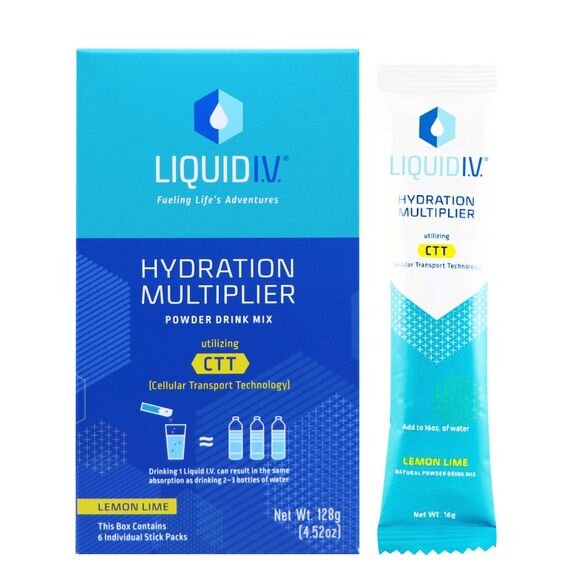How to properly fuel your body before, during, and after a workout
My clients frequently ask me, “What is the best thing for me to be eating before, during, and after a workout?” The method behind the madness of sports nutrition is actually pretty simple, and at LCN, we are here to help you know not only what to fuel your body with, but the why behind each of these ideas!
Pre-workout nutrition:
It is important to provide your body with energy that will sustain you throughout your entire workout, but consuming too much food or the wrong type of food before exercising is asking the digestive system to put in work to break down the food during exercise, which takes away from the energy needed to crush your workout! That is why it’s best to consume simple carbohydrates approximately 30-90 minutes before a workout. This allows time for the body to digest and absorb the carbohydrates so that the energy they provide is readily available in time for your workout. Stay away from protein, fiber, and fat pre-workout because these foods require more time and effort to digest, which could impair the quality of your workout. And because these foods take a bit longer to digest, they wouldn’t be available as energy to fuel your workout anyway.
Best foods to consume pre-workout:
Low-fiber fruit: applesauce, ripe banana, berries
Toast or rice cake with fruit preserves
Basic oatmeal with minimal topping
Fruit purees
Fueling your body during your workout:
For the everyday active person: We recommend consuming electrolyte drinks or supplements during the workout to replete any electrolytes lost and to help maintain hydration. A few options for oral rehydration solutions (ORS) or electrolyte supplements that I love include Skratch Labs Sports Hydration Mix or Liquid IV Hydration Multiplier because both products are backed by science and are made with minimal ingredients, void of artificial sweeteners.
For the endurance athlete: your nutritional needs during exercise are going to be increased and a bit more technical. Therefore, we recommend consulting with Lauren or another sports dietitian who has experience working with athletes to develop an individualized plan that can optimize your performance while also ensuring you don't bonk out during your training or on the day of your event. Endurance sport requires regular repletion of fluid, electrolytes, carbohydrates and other nutrients (depending on the length and intensity of your sport) to keep you going throughout your event, so you want to make sure you’re replenishing the right amount and at the right times during your event to help you crush your performance goals! Proper nutrition and hydration during training and your actual event can shave minutes off of your race time and has the potential to take the sport from challenging to easy - it makes a world of difference.
Post-workout nutrition:
There are two main objectives in properly fueling your body after a workout:
To replete nutrients lost during exercise such as water and electrolytes.
To provide the body with nutrients it can use when it is most vulnerable to absorb and utilize macronutrients to optimize body composition. What does this mean? After a workout, you want to provide the body with adequate protein (and complementary nutrients) to promote muscle development of lean body mass (including muscle and supporting connective and soft tissues).
Post-workout meals/snacks should include the following 4 components:
Protein. Protein provides the body with the materials it uses to repair muscle that was torn during exercise and essentially rebuilds the muscles to be bigger and stronger than you left them.
Carbohydrates. are used heavily by the body during exercise as energy and need to be restored to sustain regular activity. Also, carbohydrates help facilitate absorption of other nutrients.
Electrolytes. These minerals are used during exercise allow all tissues in the body (the heart, the muscles, the neurological system) to communicate properly with one another and need to be repleted to properly hydrate the body. Hydration = fluid + electrolytes.
Anti-inflammatory foods. Certain foods can help to reduce recovery time and to combat the damage of oxidative stress and inflammation induced by exercise. Examples include beet juice, turmeric, and and foods high in omega-3 fatty acids.
Performance nutrition is so much more than what you eat
before, during, and after a workout.
It is important to note that you cannot solely focus on what you eat before, during, and after a workout to sustain an active lifestyle. You must also look at your nutrition and lifestyle choices as a whole. Next time you are having trouble reaching your fitness goals, ask yourself:
Are my food choices providing my body with the proper nutrients and am I eating enough to sustain my active lifestyle?
Am I eating mostly processed ingredients that take more work for my body to digest and excrete or that may trigger symptoms for me, or is most of my nutrition coming from foods in their whole, natural form?
Am I getting enough sleep? (a solid and consistent 8 hours per night is recommended for a reason)
Is my diet and/or lifestyle causing me unnecessary stress?
**More on why sleep is crucial for overall health and well-being coming in a future blog post**
Just like everything else, sports nutrition is incredibly individualized to both the person and the sport. If you’re looking to elevate your performance or are having difficulty reaching your goals, contacting Lauren or another sports dietitian to help customize a nutrition plan to meet your specific needs may be the next step necessary to help you get there!
Have questions? Comment below with your questions,
or let us know what topics you want us to write about next!
If you would prefer to discuss this privately, contact Lauren to book an appointment.




